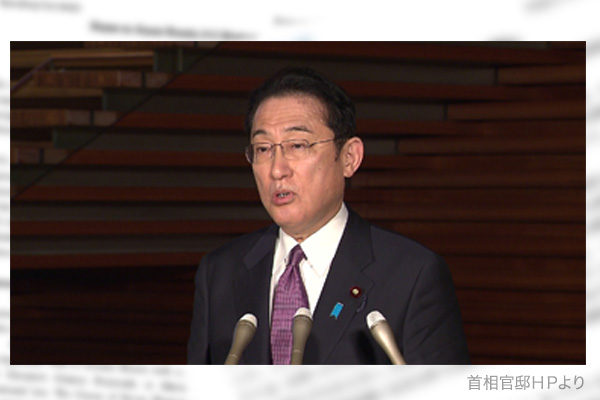Where has the time gone when postwar U.S. Presidents Harry Truman, Dwight Eisenhower and John F. Kennedy hoisted flag of democracy and liberalism to lead the world brilliantly?
As more than 100,000 troops from big Russia invade small Ukraine, incumbent U.S. President Joe Biden has no plan to dispatch a single American soldier to Ukraine, while focusing on squeezing Russia through economic sanctions and sending a limited number of troops to North Atlantic Treaty Organization member countries around Ukraine.
If Ukraine is occupied by Russia or stuck in a guerrilla warfare quagmire, the U.S. role in maintaining international order will be called into question more than ever.
U.S. hesitant about direct military intervention
The first reason the United States has taken an inward-looking attitude toward the Ukraine problem may be the “America First” thinking that former President Donald Trump adopted to focus on narrow U.S. national interests is now shared by both Democrats and Republicans despite their fierce infighting.
Second, the U.S. has no choice but to become cautious in response to Russian President Vladimir Putin’s threat to use nuclear weapons. A desire to avoid any dangerous confrontation that could trigger World War III is widespread among American people.
Third, the U.S. has established its Asia pivot policy to counter China as the largest adversary. The U.S. now has no military capabilities to form fronts both in Asia and Europe. It is impossible for the U.S. to easily shift foreign policy priority back to Europe from Asia.
Western countries are growing sympathetic to very patriotic Ukrainians who have made the first step forward towards a democracy in pursuit of freedom. Putin’s decision to invade Ukraine can be said as having been wrong from the beginning. U.S. leadership alone cannot explain the reason many countries impose economic sanctions on Russia under Biden’s initiative. The sanctions may backlash but will produce effects one after another.
Wouldn’t the sanctions be combined with Russia’s domestic anti-government, anti-war movement to jolt Putin’s dictatorship? Foreign Affairs magazine has carried an article describing the Russian invasion as “The Beginning of the End for Putin.”
Europeans sensitively react to Russian invasion
How should Japan’s position be in this extremely complicated international situation? Germany, which had retained a strong tendency to refrain from playing military roles since the end of World War II, turned around its defense policy immediately after Russia’s invasion into Ukraine, deciding to raise its defense spending to the NATO target at 2% of gross domestic product. As well as Switzerland known as a permanent neutral country, Sweden, Finland and Norway have provided weapons to Ukraine. European countries that support the dispirited U.S. have sensitively reacted to the international security crisis triggered by Russia.
How about Japan that neighbors Russia in the Far East and faces threats from China that eerily retains a wait-and-see attitude toward the Russia-Ukraine war? The fact that Japan is far less sensitive than Germany may be more than a funny story.
Tadae Takubo is Vice President, Japan Institute for National Fundamentals, and a professor emeritus at Kyorin University.


